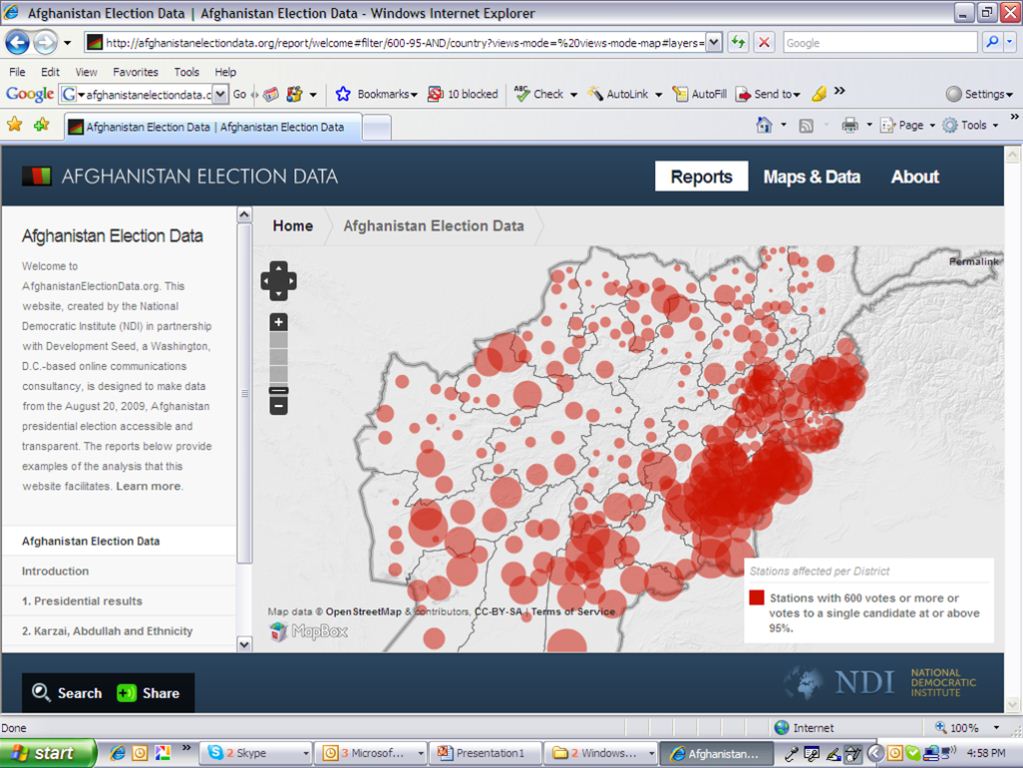ICT at Work: Afghanistan Election Mapping and Uganda Citizen Hotline

Recent NDI programs demonstrate the important role technology can play in supporting fragile democracies.
Afghanistan Elections
In the aftermath of last summer’s flawed Afghanistan presidential election we created a tool for analyzing election results data in order to pinpoint fraud. The tool enables us to illustrate the widespread fraud using advanced visualization data filtering, and mapping tools; the intent is to compel the regime to hold a better parliamentary election this September, and provide information to assist parties and election monitoring groups as they prepare to oversee the process. We are in the process of extending this platform with additional data sets. This approach is closely tied to the “open data” movement, a push to encourage governments and other organizations to make their data not only available, as the Afghan election commission did in the 2500 page PDF document, but accessible, so that anyone, including civil society groups pushing for more transparent and accountable government, can use the data for their own analysis.
Uganda Citizen Hotline
Another current program example is the Uganda Citizen Hotline program, developed by our partner in Uganda for monitoring the upcoming election. The Hotline allows citizens to report any problems they have with voter registration during the pre-election period, and will be combined with a domestic election monitoring program using a national network of trained observers for Election Day. The Citizen Hotline program uses crowdsourcing in its approach to data collection. Crowdsourcing is an evolving approach that uses citizen participation in oversight of elections and other political processes, including human rights monitoring, budget monitoring, and many others.
